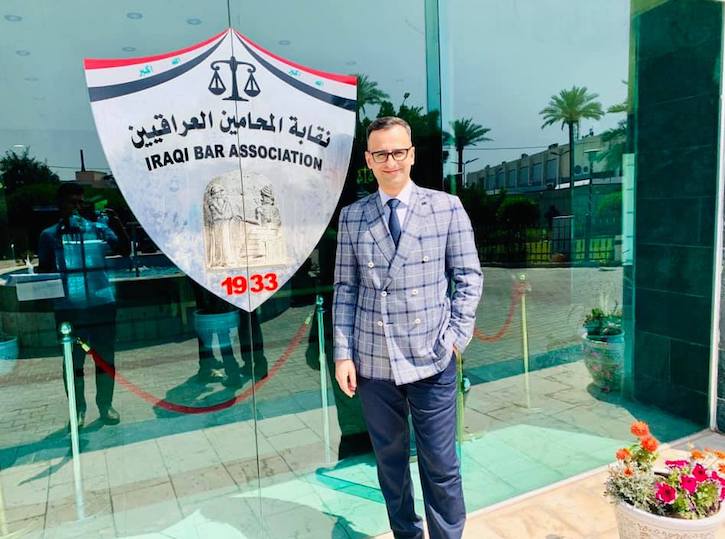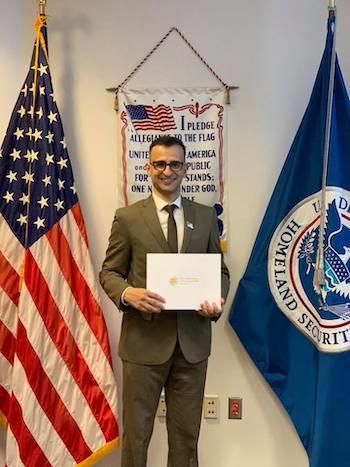When Haider Semaisim works on the federally mandated database of global incidents of terrorism with George Mason University’s Schar School of Policy and Government, he does so with pride. It is not only an educational and professional endeavor, he said. “It’s personal.”
“Iraq is one of the countries that suffered a lot from terrorism,” said Semaisim, an Iraqi-American. “[My friend, Zaid] was killed in 2011 by ISIS.”

Zaid, who Semaisim said was working as a first lieutenant for the Iraqi Army, responded to an order to liberate hostages in a home. Tragically, the house was booby-trapped and exploded, he said.
“It was very devastating,” said Semaisim, who earned his master of laws from Mason’s Antonin Scalia Law School in 2017. “This project is giving me retribution in a way, that I am fighting terrorism through the keyboard.”
As Semaisim analyzes terrorist incidents for the database from open-source media, he helps trace terrorist trends and strategies.
“When we look at a terrorist organization holistically over one or two years, we notice something that a real-time follower would not notice,” Semaisim said.
That’s one reason the database provides critical insight for policy makers, he said.
Semaisim said he primarily analyzes incidents from Iraq, and his fluency in Arabic and understanding of Iraqi culture and politics allow him to bring a unique expertise to the project.
He describes the project as “the good fight,” but he is also passionate about making a difference in other areas.
Before coming to the United States in 2014, Semaisim said he was a lawyer in Iraq doing criminal and divorce law.

“I was not very optimistic about the future of Iraq, and the United States is a beacon of freedom,” said Semaisim, who became a U.S. citizen in 2018.
Some of Semaisim’s friends were not as fortunate, he said. Learning about their challenges in gaining legal status inspired him to switch his interests to immigration law.
“There’s a lot of people who deserve to be here, who would contribute a lot, who seek to have a better life to care for their children and want to be here,” Semaisim said. “With just the right type of help, they can live their lives normally.”
Thanks to his Mason education, Semaisim believes he will be on his way to helping after he passes the bar exam.
“George Mason is an amazing university,” Semaisim said, adding that the law school professors, such as his favorite, Michael Davis, are respected lawyers who not only teach from textbooks, but from real-life experience.
Even when Semaisim would disagree with peers or professors, he said his Mason education instilled in him “respect of the argument and how to accept differences.”
“Haider is a hard worker, eager to learn, willing to give back, and fully appreciative of the education he received,” Davis said. “There are some students I think will do well in the future, and then there are those students like Haider, who I am sure they will do well. He was an asset to our law school and a model for other LLM students.”
